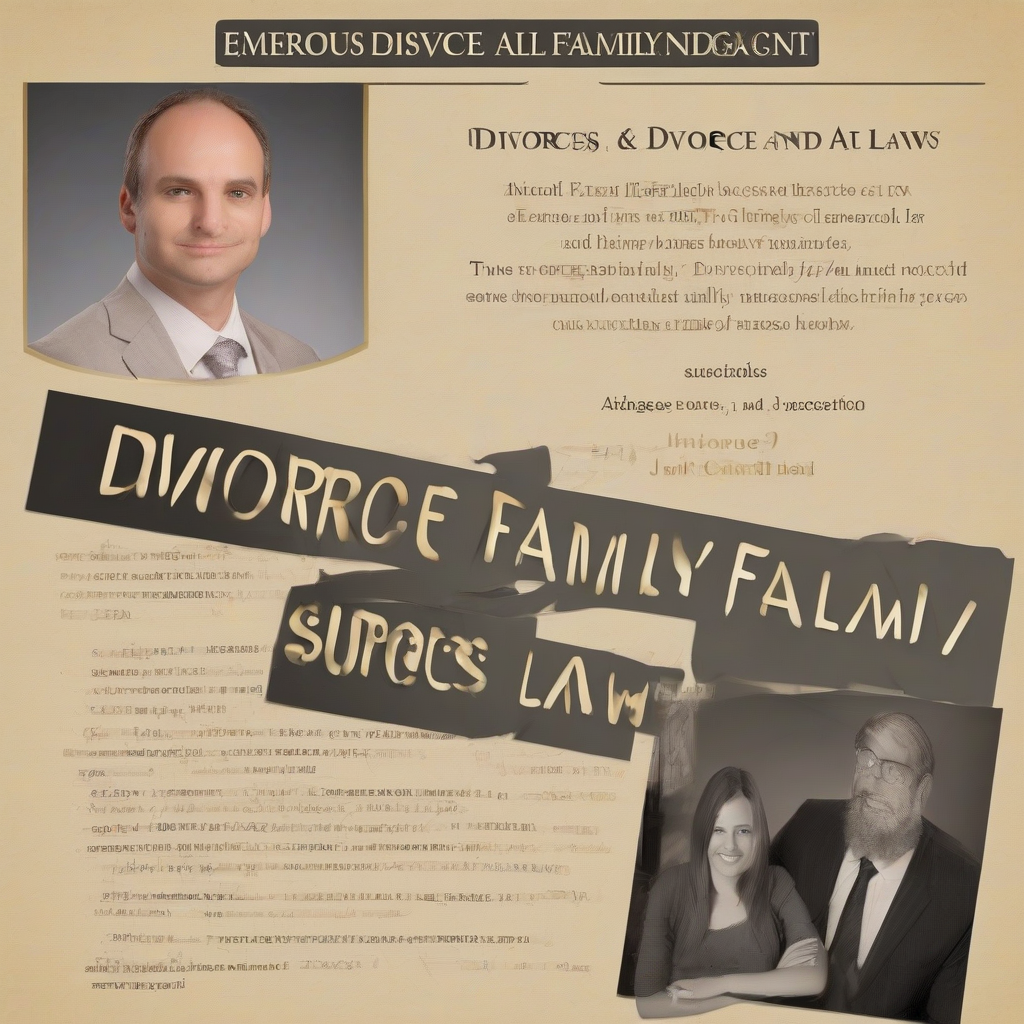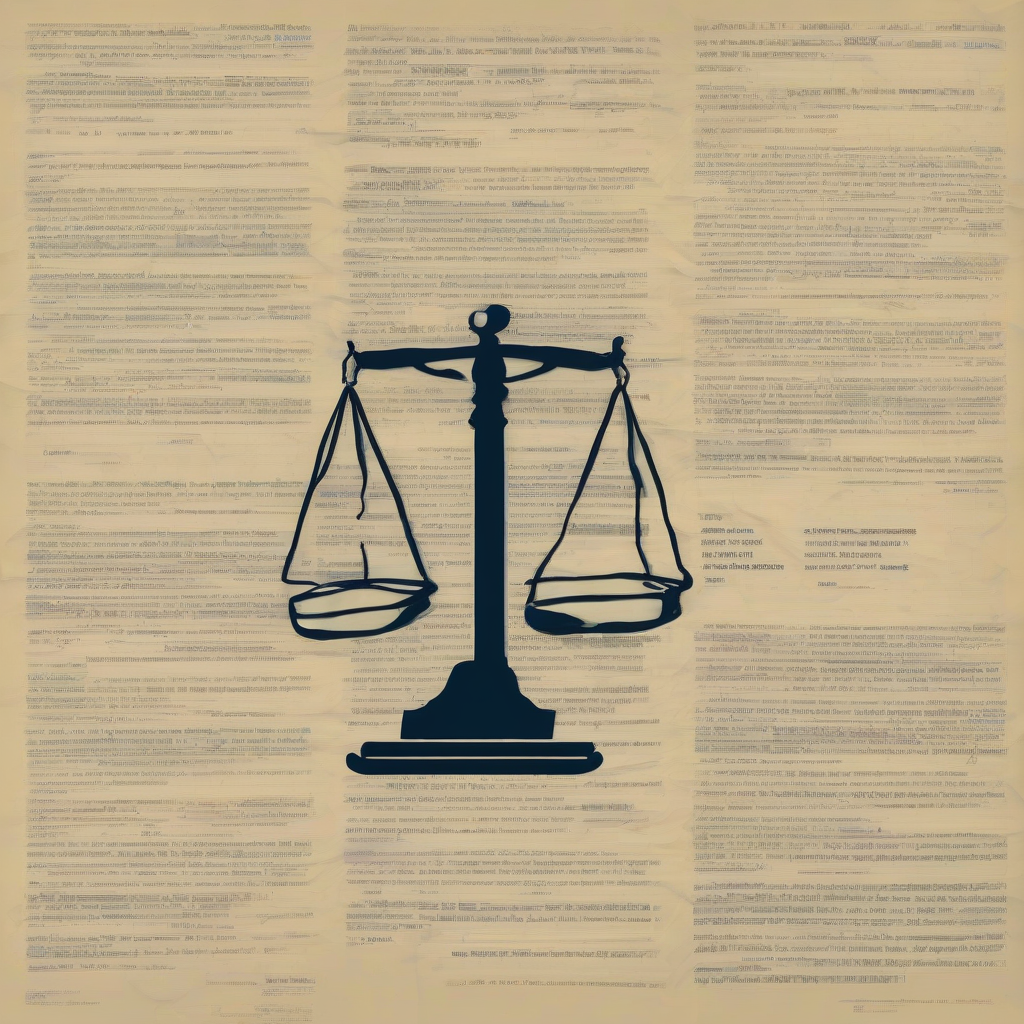Divorce and Family Law Attorney: Your Guide to Navigating Legal Challenges

Divorce and Family Law Attorney: Your Guide to Navigating Legal Challenges
Divorce and family law issues are complex and emotionally charged. Whether you're facing a separation, child custody disputes, or property division, having a knowledgeable and experienced attorney by your side is crucial to protect your rights and achieve a favorable outcome. This guide will provide a comprehensive overview of divorce and family law attorneys, their role, and how they can assist you in navigating these challenging situations.
Understanding Divorce and Family Law
Divorce and family law encompass a broad spectrum of legal issues, including:
- Divorce Proceedings: Legal dissolution of a marriage, covering aspects like property division, spousal support, child custody, and child support.
- Child Custody and Visitation: Determining the legal and physical custody of children, visitation arrangements, and parental responsibilities.
- Child Support: Financial obligations of parents to support their children after separation or divorce.
- Spousal Support (Alimony): Financial assistance provided to a former spouse after divorce, based on factors such as the duration of the marriage, earning capacity, and financial needs.
- Property Division: Fair distribution of marital assets and debts acquired during the marriage, including real estate, investments, savings, and retirement accounts.
- Domestic Partnerships and Cohabitation Agreements: Legal arrangements for unmarried couples, covering issues such as property ownership, financial obligations, and child custody.
- Prenuptial and Postnuptial Agreements: Contracts entered into before or after marriage that define property division, spousal support, and other legal aspects in the event of divorce.
- Adoption: Legal process of acquiring parental rights over a child, including domestic and international adoption.
- Paternity: Establishing legal parentage, often involving DNA testing and child support obligations.
- Domestic Violence and Restraining Orders: Legal protection measures for individuals experiencing domestic violence, involving court orders to prevent further abuse and ensure safety.
The Role of a Divorce and Family Law Attorney
Divorce and family law attorneys are legal professionals specializing in navigating the complexities of these legal issues. They play a multifaceted role, acting as:
- Legal Counsel: Providing advice and guidance on legal options, rights, and responsibilities.
- Negotiator: Representing your interests during negotiations with your spouse or other parties involved in the case.
- Litigator: Advocating for your position in court if negotiations fail, preparing legal arguments, and presenting evidence.
- Advocate: Protecting your interests throughout the legal process, ensuring your voice is heard and your rights are safeguarded.
- Strategist: Developing a comprehensive legal strategy tailored to your individual circumstances and goals.
- Mediator: Facilitating communication and compromise between parties to reach amicable agreements.
- Document Drafter: Preparing legal documents such as divorce petitions, child custody agreements, property division agreements, and support orders.
- Information Source: Providing you with accurate and relevant information about the legal process, your rights, and potential outcomes.
Services Offered by Divorce and Family Law Attorneys
Divorce and family law attorneys offer a range of services to assist clients throughout their legal journey. Some common services include:
- Initial Consultation: Meeting with the attorney to discuss your case, legal options, and potential outcomes. This consultation typically involves outlining your situation, explaining your goals, and asking any questions you may have.
- Case Evaluation: Thorough analysis of your case, including reviewing relevant documents, assessing legal arguments, and formulating a strategy.
- Negotiation: Representing your interests in negotiations with your spouse or other parties, aiming for an amicable settlement.
- Litigation: Advocating for your position in court, preparing legal arguments, and presenting evidence if negotiations fail.
- Document Preparation: Drafting and reviewing legal documents, such as divorce petitions, child custody agreements, property division agreements, and support orders.
- Discovery: Gathering evidence and information relevant to your case, including obtaining documents, conducting depositions, and issuing requests for information.
- Court Appearances: Representing you in court hearings, trials, and other legal proceedings.
- Enforcement of Orders: Assisting you in enforcing court orders, such as child support payments or visitation arrangements.
- Post-Decree Assistance: Providing ongoing support and legal guidance after a divorce decree is issued, addressing issues like modification of custody arrangements, enforcement of support payments, or changes in financial circumstances.
Benefits of Hiring a Divorce and Family Law Attorney
Hiring an experienced divorce and family law attorney offers numerous benefits, including:
- Protection of Your Rights: A skilled attorney ensures your legal rights are protected throughout the legal process, preventing potential pitfalls and safeguarding your interests.
- Expert Legal Knowledge: Divorce and family law attorneys possess specialized knowledge and experience in navigating complex legal issues, providing accurate and informed advice.
- Effective Negotiation Skills: Attorneys are skilled negotiators, advocating for favorable terms in settlements and agreements.
- Strong Courtroom Representation: In case of litigation, an attorney will advocate for your position in court, presenting compelling arguments and evidence to support your case.
- Reduced Stress and Anxiety: Having an attorney by your side can reduce the stress and anxiety associated with legal proceedings, allowing you to focus on your well-being and family.
- Increased Chances of a Favorable Outcome: An experienced attorney increases your chances of achieving a favorable outcome, securing a fair and equitable settlement.
- Clear Understanding of Legal Process: Attorneys provide clear and concise explanations of the legal process, procedures, and potential outcomes, reducing confusion and ensuring informed decision-making.
- Time and Cost Efficiency: While legal fees are an investment, attorneys can actually save you time and money by preventing costly mistakes, ensuring you receive the right legal strategies and avoiding unnecessary legal battles.
Finding the Right Divorce and Family Law Attorney
Choosing the right attorney is crucial for a successful outcome. Here are key factors to consider when selecting a divorce and family law attorney:
- Experience and Expertise: Look for attorneys with proven experience in divorce and family law, specializing in areas relevant to your case.
- Reputation and Track Record: Inquire about the attorney's reputation, client testimonials, and case outcomes.
- Communication Skills: Choose an attorney who communicates effectively, listens attentively, and provides clear explanations.
- Availability and Accessibility: Consider the attorney's availability for consultations, meetings, and court appearances.
- Fees and Billing Practices: Discuss fees, billing arrangements, and payment options upfront to ensure transparency and avoid surprises.
- Personal Chemistry: It's important to feel comfortable and confident with your attorney, as you'll be working closely together.
- Bar Membership and Disciplinary History: Ensure the attorney is in good standing with the state bar and has no history of disciplinary actions.
- Professional Associations: Membership in professional organizations like the American Academy of Matrimonial Lawyers (AAML) or the American Bar Association (ABA) can indicate a commitment to professional standards.
- Referrals: Ask for referrals from trusted sources, such as friends, family members, or other professionals.
- Online Research: Utilize online resources like lawyer directory websites, online reviews, and professional profiles to gather information about potential attorneys.
Conclusion
Navigating divorce and family law matters is a complex and emotionally challenging process. Hiring an experienced divorce and family law attorney provides invaluable support and legal guidance, protecting your rights, maximizing your chances of a favorable outcome, and alleviating the stress associated with these legal issues. By carefully considering the factors discussed above, you can find the right attorney to guide you through this challenging time and ensure your legal rights are protected.
What's Your Reaction?

















